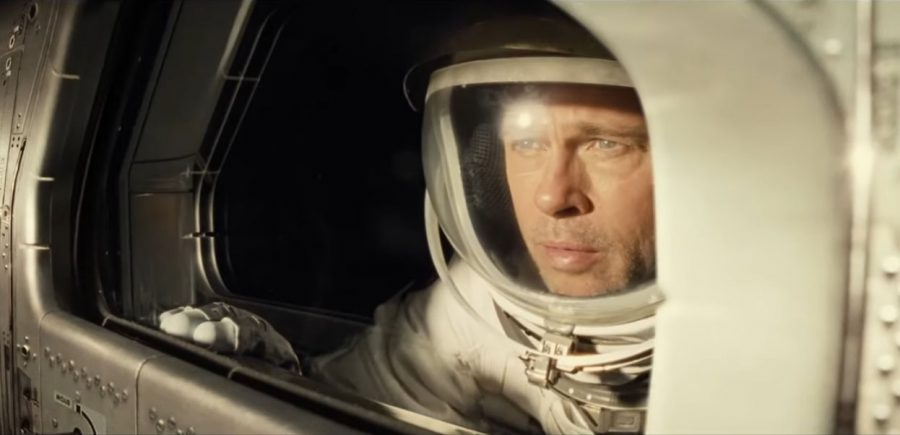‘Ad Astra’ provides out of this world storytelling
PHOTO FROM OFFICIAL AD ASTRA TRAILER
In “Ad Astra,” dark themes such as loneliness and depression are examined through the beautiful backdrop of outer space.
October 4, 2019
Hollywood has been overrun by space films. Since the premier of “Guardians of the Galaxy,” the genre has become a big fat joke. This forced the film industry down a dark path as they have cranked out plenty of pointless and forgettable space movies twice a year! Now, sci-fi films must work harder than ever to impress their audiences.
The latest prospect to throw a hat into the ring is director James Gray. Gray is not really known for much but does a brilliant job of pulling the audience further from Earth and the familiar. “Ad Astra” has surpassed all expectations by having intriguing themes of depression, loneliness and mystery.
The idea that man can conquer space is flipped on its head as the film jumps ahead in time and follows Roy McBride, played by Brad Pitt, a veteran of the United States Armed Forces and astronaut. He embarks on a dangerous mission across the wild solar system to uncover the truth about his missing father and his doomed mission, which now threatens humanity.
The film is uniquely sober as it explores a not too distant future where space travel is as common as driving cross country. It is meant to be normalized and a bit unimpressive, but it is beautifully filmed and provides some mind-bending visuals.
While most modern films rely on computer-generated imaging, Gray obviously decided against it. The best scenes are jaw-dropping set pieces that include a shootout on the moon and a zero-gravity fight between McBride and an unhinged baboon.
This film has an excellent balance of hard science fiction and deep, emotional trauma. Through copious amounts of voice over and frequent confessional-like psychological evaluations, the audience really gets a taste of the theme: loneliness. The movie taps into the meaning of being alone and how it affects us. It is explored by comparing loneliness to the vast emptiness of space; it also focuses on good, old-fashioned human isolation.
Pitt delivers a great performance as a man dealing with the absence of his father and the loneliness that results from a lack of human contact. Pitt is excellent in the role, in no small part of his charm. The amazing storytelling gives you a crystal-clear image of what he’s going through. As a result, you automatically connect with the character.
All these elements were fantastic, and the film never came across as boring. The pacing, however, was a little off, and, unfortunately, this might turn some people away. For a film that is only two hours, it can feel longer.
Other than that, the film achieves what it sets out to accomplish and is done to near perfection. It is obvious the director has a gift for shrinking massive set pieces and enlarging private dramas. “Ad Astra” is now playing in theaters.



